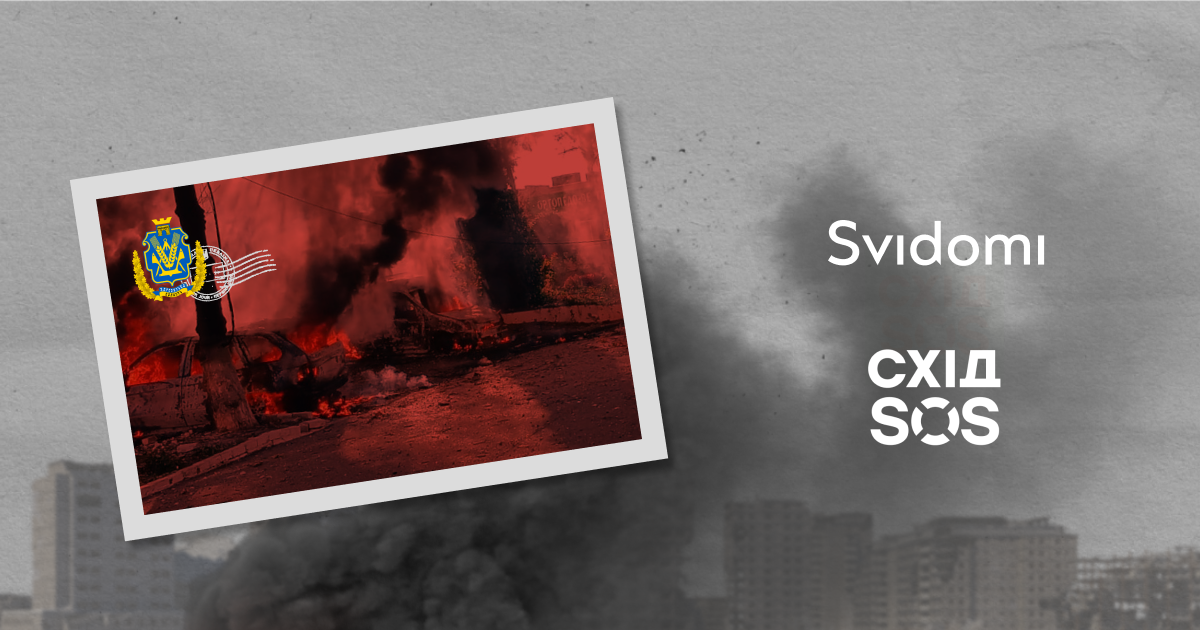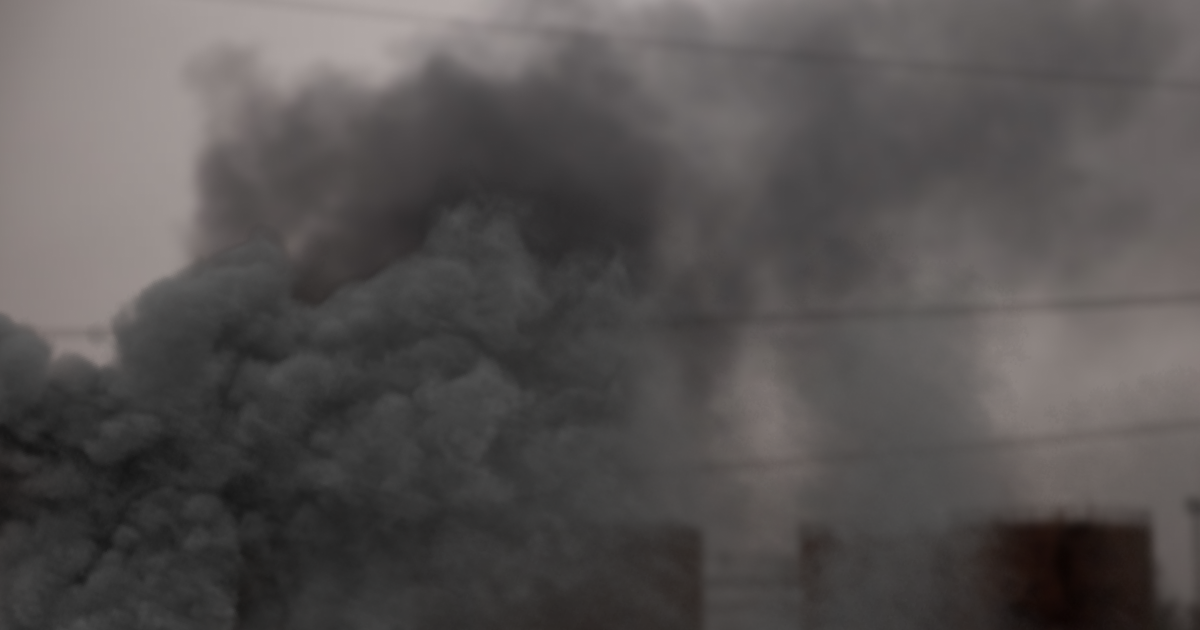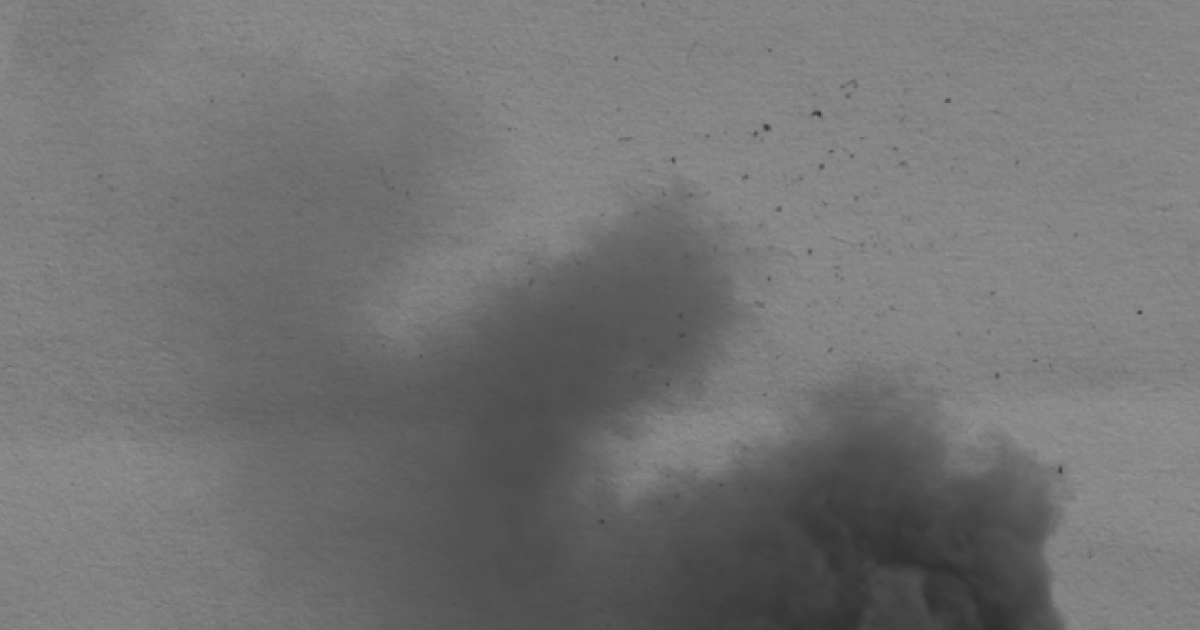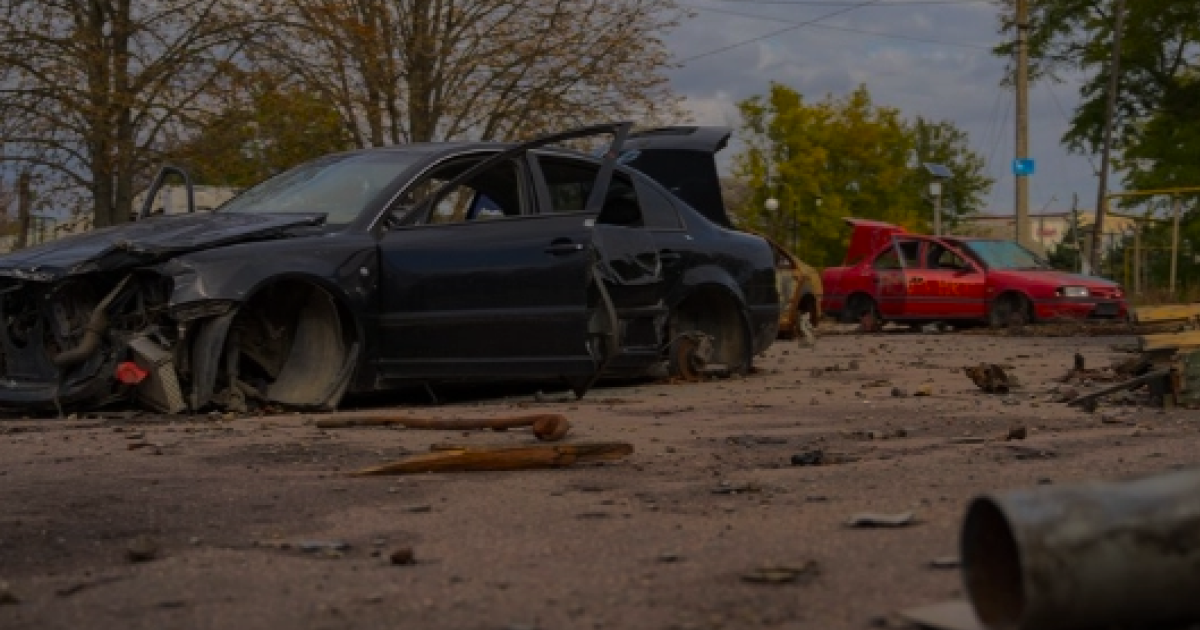"Russians shot two people in a car who went to get medicine for a child," a story of a Hrozove resident
Oleksandr Vasylenko

The story of Olha Kobets from the village of Hrozove, who survived the occupation in the Kherson region with her children and husband.
Since 2014, the Vostok SOS charitable foundation has been collecting information about war crimes committed by Russians to ensure justice and the right to truth.
The story of Olha Kobets was recorded by Tetiana Petrova, and the text was written by Oleksandr Vasylenko.
Below is the interview.

I live in the village of Hrozove. Before the war, I used to do embroidery and knitting. My husband and I have five children. We all live in a private house, keep pigs and rabbits, and have a cow. Before the full-scale war, my daughter was supposed to go to university. But the war changed everything and crossed out all plans.
On February 24, at 5:20 am, my husband and I jumped out of bed when we heard explosions. We thought the house was going to fall. Chornobaivka is not far from us, so we saw Russian troops start shelling it. They were hitting the airport. That morning, a rocket whizzed over our heads.
At about 11 a.m., two planes flew overhead — the children got terrified. But that day, it was more or less quiet.
Some people in the village sold their cattle and left; others stayed. The latter were keeping a low profile. When there was no shooting or whistling overhead, we went to the garden, planted something, dug, and grazed the cows. Some even managed to go to Kherson through Russian checkpoints. I know a woman who sold milk in the city during the occupation. She had to sell it somewhere.
Then, probably for ten days, we could not tell the time, whether day or night. Everything would shoot and fly around. And then, around March 5, Russian convoys with vehicles marched along the road from the side of the village. They had the letters "Z" and "V" on them. We counted 150 vehicles. They were heading for Mykolaiv; some drove into the village's landings and fired towards the city.

The Russian military came to our village in July last year, set up tanks in the walnut orchard and fired at Mykolaiv from there. And there is a farm next to the walnut orchard — they tore out the doors because they couldn't remove the locks and spent the night there.
Then they went around the village looking for an empty house to settle in. Our neighbours had left for Türkiye, so I used to hang things in their yard to make them think that people lived there.
Once, we were driving past a checkpoint, and a Russian soldier grabbed our eldest son by the arm: "You're the right age for conscription. You are coming with us".
I started screaming. They were wearing balaclavas, and I could not see their faces. They searched the car and looked for tattoos on my husband. They didn't touch us anymore. They let my son go, but after that, he did not leave the house for three months.
The presence of Russians seemed like an eternity to us.
They did not live in our village. They used to drive through the village — back and forth. At first, when they entered the village, they shot from machine guns to make sure that no one was there. They shot in the air, at the asphalt, people's fences, and gates. If they saw someone on the street, they shot at the gate.

In April, when it was still cool, it was the first time a shell had landed in the yard of the neighbours next door to us. They say it was a cluster munition. At that moment, a woman was grazing cattle around the village — her cow was cut by shrapnel. The woman was wounded.
Shrapnel was falling all over the village. Later, the locals told us that it was the Russians who had set up equipment outside the village and were shooting from there in the direction of Mykolaiv.
We lived in constant fear at that time. We did not know where to hide and what to do. We were afraid of every noise.
Also, in April, Russian soldiers shot a red civilian car from a tank between our village and Myroliubivka. A man and a woman, his niece, were killed. That day, they went to buy medicine and food and were on their way home when they were shot at. Our men rushed to the car at once. They saw a dead woman in the car - her body and face were torn apart. The man was still alive, although the Russians had run over the car with a tank right where he was sitting. When the ambulance arrived, the men tried to pull him out of the wreckage, but he died.

And then, also in April, the Russians kidnapped two boys from our village and beat them badly. I talked to one of them. He told me he was going to Bilozerka to visit his grandmother, and his friend was visiting Komyshany to see his sister. There were no buses back then, so they walked. When they were passing a crushed car, a Russian car stopped near them. The soldiers asked: "Why are you looting here?"
Then they pulled their sweaters over their faces, tied them up with tape and took them away. The boys did not understand where they were going. They interrogated them, made them sit on a chair, and asked them: "What were you doing there? Where were you going?"
The Russians had no interest in answers. They just asked a question and hit. A question — a hit.
They broke one's teeth with a rifle butt and then took them both somewhere and tied them naked to a post. That's how the guys managed to tear the tape and get free. They found some old trousers in a dumpster and returned home in them.
When we were liberated, it was as if we had woken up in the past.
My daughter called me on the evening of November 10 and said that our [military] were in Pravdyne. It was close, so we would be de-occupied soon. The Russians were rapidly leaving. But the vehicles did not go along the road; they fled towards Kherson through the fields. They stole people's property from their homes and set up tripwires.
When the Ukrainian military came in, we were finally able to breathe out - the occupation ended without any losses in our family. Although the children are still small, when the Russians were here, I explained that evil people had come so they could not run out of the yard and go to their grandmother alone. Now, everyone can play freely. However, their fear hasn't gone away.


